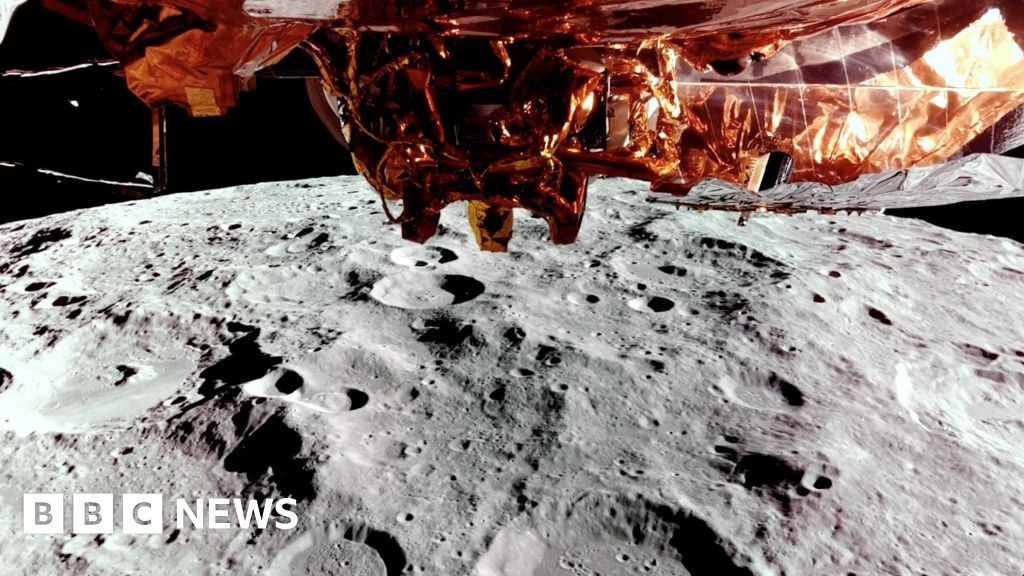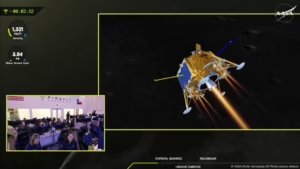A private spacecraft, named Blue Ghost, successfully landed on the Moon, marking only the second commercial vehicle to achieve this feat. The mission, a collaboration between US space agency NASA and private companies, was launched by Firefly Aerospace on January 15 with the aim of exploring the Sea of Crises, a prominent crater visible from Earth. Blue Ghost had been orbiting the Moon for two weeks before its landing.
Meanwhile, Intuitive Machines, another private company, is set to land its Athena spacecraft near the Moon’s south pole in the upcoming days. Although Intuitive Machines was the first private company to achieve a lunar landing last year on February 22 with the spacecraft Odysseus, the mission ended prematurely as the spacecraft landed on the slope of a crater, broke some landing gear, and toppled over.
Dr Simeon Barber, a planetary science researcher from the Open University, highlighted the significance of Blue Ghost’s successful landing as it demonstrated the technology for landing on the Moon, a capability that had been lost after the Apollo era. According to Dr Barber, private companies see the Moon as a stepping stone for exploring the rest of space. By going to the Moon, they can learn to operate robotic instruments in the harsh lunar environment, which experiences extreme temperatures and intense radiation. This expertise can eventually help extract resources, such as water, for astronauts to use.
The involvement of private companies is believed to reduce costs due to commercial competition. NASA’s Apollo missions, while highly successful, were expensive and unsustainable with costs running into billions of dollars. This new approach could lead to cheaper landers and innovations in extracting resources from the Moon. Astrobotic Technology, another US firm, attempted to reach the Moon in January 2024 but their lander crashed back to Earth due to a suspected fuel leak.
Source: https://www.bbc.com/news/articles/cd9208qv1kzo








